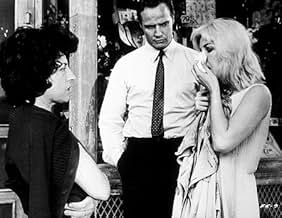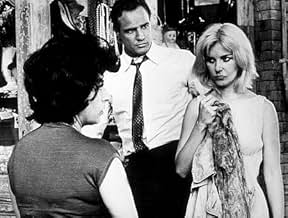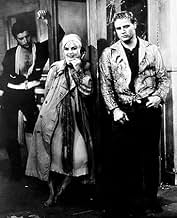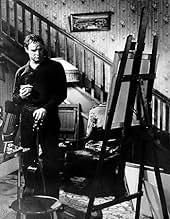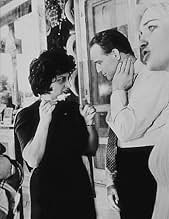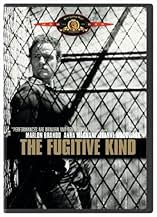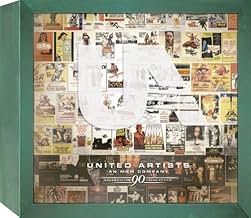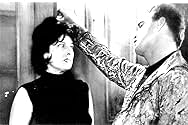Un vagabond à problèmes qui essaie de se mettre dans le droit chemin, s'aventure dans une petite ville du Mississippi à la recherche d'une vie simple et honnête, mais se retrouve mêlée à des... Tout lireUn vagabond à problèmes qui essaie de se mettre dans le droit chemin, s'aventure dans une petite ville du Mississippi à la recherche d'une vie simple et honnête, mais se retrouve mêlée à des femmes à problèmes.Un vagabond à problèmes qui essaie de se mettre dans le droit chemin, s'aventure dans une petite ville du Mississippi à la recherche d'une vie simple et honnête, mais se retrouve mêlée à des femmes à problèmes.
- Réalisation
- Scénario
- Casting principal
- Récompenses
- 2 victoires au total
- Ruby Lightfoot
- (as Spivy)
- Bit Part
- (non crédité)
Avis à la une
Williams himself adapted his play along with Meade Roberts and he signposts all the big moments well in advance. Once you hear Magnani's Lady Torrence tell of how vigilantes burned down her father's orchard with him in it, you know how things will turn out - badly! The superb cinematography, in widescreen and in black and white, is by the great Boris Kaufman and the nice, bluesy score is by Kenyon Hopkins.
Valentine Xavier (Marlon Brando), also know as Snakeskin because of the snakeskin jacket he wears, gets out of jail in New Orleans and hits the road. His car breaks down in the middle of a rainstorm in a little Mississippi town, so he stops and gets a job in a little mercantile store run by Lady Torrance (Anna Magnani). She's lonely and has an older sick husband, Jabe (Victor Jory), who doesn't trust her or the good-looking clerk she just hired, especially when she fixes up a little bedroom for Xavier in the back of the store.
Lady Torrance gets some competition from a young rich woman, Carol (Joanne Woodward), who is often drunk and remembers Xavier from New Orleans. She's too over the top to be real competition for Lady Torrence, however.
After Lady Torrence learns her husband was among an earlier group of vigilantes that burned down her father's vineyards and home with her father inside, she is determined to open a "confectionary" attached to the mercantile store, that is designed like a vineyard. She wants Jabe to see before she allows him to die.
However, there is a conflagration at the end that unhappily resolves the plot.
This is Tennessee Williams with his grimiest southern town filled with malfunctioning human relationships. There are only dim flares of hope throughout, only to be extinguished by the end. Marlon Brando, as one reviewer put it, is "an astonishing physical specimen, a statuesque hunk with the intellectual ennui of a philosopher, who moves with a panther-like ease" and is "the misfit we all want to be." Anna Magnani is the earthy older woman who is finally trying to grasp some joy from life. They are a potent combination, though I sometimes find Tennessee Williams' words to be overwrought.
This is one of those great movies that slips its way into that big gap between the great Hollywood Golden Age to the great New Hollywood of the late 1960s. An awful lot of films from the period between (1955-65) are weak or even downright bad, big budgets and all. The Hollywood gems in that time are usually a little gut wrenching, and many are based on plays, or push political issues (I'm thinking of "The Apartment" and "The Manchurian Candidate"). The famous directors coming to their own during time include Elia Kazan and Robert Wise, and of course Sidney Lumet, who directed this one.
This is all working class, plainspeaking, emotive material. Right from the get-go with leading man Marlon Brando doing a long take as he stands before a judge, we are filled with heart-wrenching stuff, people who want to be something and don't know how, or people with big hearts that are broken or dirty. The cast, beyond Brando, is terrific: Joanne Woodward as a young floozy with a sharp sense of independence, Maureen Stapleton as a simple and faith filled wife of the sheriff, and Anna Magnani, intense and troubled but superior in her own out of place way.
There are powerful displays of white narrow-mindedness (call it bigotry, but it is largely aimed at just anyone they don't like) that don't quite fall into clichés, there is love that shouldn't be and that never is, there is old world morality and inbred local gossipy immorality. Things are bound for collision even by twenty minutes in, and there are innuendoes and hidden histories waiting to blossom.
Lumet has a knack for the serious, with his 1957 breakthrough film "12 Angry Men" a template for his career. As lively and even crazy as this movie is, it's also probing deeply into human woe and maladjustment (often deliberate). The core of the writing belongs to Tennessee Williams, who of course is all about inner troubles and outward misunderstood or mistaken actions. There is nothing superficial here, not in the acting, the filming, or the scenes (set in the South but filmed near Saratoga Springs, New York). And if the wet, dark nights scenes and interiors with people quarreling and fighting aren't enough to suck you in, the story, about wanting to live, nothing more, is beautiful and important. All four of the main characters are deeply good people, and all flawed in small but debilitating ways.
Which should sound familiar. As over the top as it sometimes seems, you'll identify with the position some of the people end up in. Brando is temperamental but patient and with a profound sense of justice. Woodward is a free spirit misunderstood (and punished) by the uptight and hypocritical society around her. The themes are frank for 1960, including an implication of a male so manly and irresistible the women want him (and get him) even when it's completely wrong. And when it's right. The sexuality, partly pumped up by the writing of the openly gay playwright (Williams), is all over Brando's face and in his scenes. And this is his movie.
High high drama, but from within. And explosive. Don't miss it.
Written in 1957, "Orpheus Descending" is a reconstruction of Williams' 1940 "Battle of Angels," filmed under Sidney Lumet's direction as "The Fugitive Kind."
Williams subtracted elements of the ancient myth of Orpheus and Euridice to examine the sadistically patriarchal Southern Gothic town and to create a violent plot, involving ruined love, weakness, sex, betrayal, vengeance and lingering hatreds... "Orpheus Descending" shows how social prejudice threatens the lives of identified outsiders...
This classic play is not quite his masterpiece... "A Streetcar Named Desire" is... It lacks some of the regretful charm of "The Glass Menagerie" and the entire impact of "Cat On a Hot Tin Roof." Nevertheless it is a deeply moving work of art...
Williams was known for his compelling dialog and themes that - for their time - often seemed strange or shocking... He vividly suggested the sexual tensions and prevented violence of his tormented character, usually with compassion as well as irony...
The film focuses on a handsome drifter from New Orleans, named Val Xavier, wearing a snake skin jacket - Williams' trademark of a rebel, non-conformist - Val is a "fugitive kind" who comes in off the highway... He is a rural Orpheus who descends to rescue his love, not in Hades precisely, but among the intrigue, chatter, and violence of the hot-tempered town of Two Rivers, Mississippi... He is a wandering guitar player who embarks on an affair with a lonely frustrated unhappy storekeeper's wife Lady Torrance...
Anna Magnani is intelligently sensual and charming as Lady... Joanne Woodward is the hungry grotesque drunken Carol who tries to seduce Val in a cemetery... Both women are so intense, that they force you to become involved with them...
The genuine community provides also interesting watching: Victor Jory, positively magnetic as the brutal oppressive husband Jabe Torrence; the vindictive sheriff R. G. Armstrong; and the soft-hearted Vee (Maureen Stapleton).
Lady Torrence is a study of the immigrant woman who has acquired a patina of resilient toughness but who slowly admits her sensuality... She catches perfectly contradictory emotions of one who is wary of the stranger but who longs for his healing touch...
With handsome magnetism, Brando is no less compelling... He is quite convincing avoiding all the clichés of the drifting Don Juan... With some kind of lucid intensity, he mixes his character's predatory and uncivil arrogance with flashes of sweet tenderness...
The film (definitely worth seeing) is extremely poignant and captivating... The direction is excellent and the action moves very smoothly, never allowing you to relax...
Le saviez-vous
- AnecdotesMarlon Brando described Anna Magnani as being equally fiery and passionate off screen. He claimed she made a pass at him in a hotel before filming began.
- GaffesAt the cemetery, Xavier returns to the car and turns on its headlights. A much brighter studio light comes on a beat too late to further illuminate the right side of the frame.
- Citations
Lady Torrance: Tell me some more about your self-control.
Valentine Xavier: Well, they say that a woman can burn a man down, you know? But I can burn a woman down. I'm saying that I could. I'm not saying I would.
Lady Torrance: What's the matter? Have they tired you out?
Valentine Xavier: No, I'm not tired.
Meilleurs choix
- How long is The Fugitive Kind?Alimenté par Alexa
Détails
- Date de sortie
- Pays d’origine
- Langue
- Aussi connu sous le nom de
- El hombre de la piel de víbora
- Lieux de tournage
- Société de production
- Voir plus de crédits d'entreprise sur IMDbPro
Box-office
- Budget
- 2 000 000 $US (estimé)
- Durée1 heure 59 minutes
- Couleur
- Rapport de forme
- 1.66 : 1


